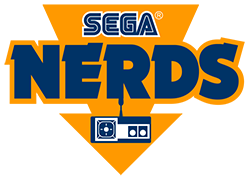
A quick look at Magic: The Gathering for Dreamcast
Seminal fantasy collectible card game, Magic: The Gathering, and video games may have started out at opposite ends of the geeko-sphere, but the latter medium’s enormous and ever growing popularity has resulted in the two converging rather often, especially in recent years.
The game’s custodians, Wizards of The Coast, have offered a full online iteration, the imaginatively titled Magic Online since 2002. Although Wizards have made great strides in terms of both aesthetics and accessibility in recent years, it’s probably fair to say that Magic Online remains rather unaccommodating to newbies, and barely more visually stimulating than Windows 95 era Solitaire.
In an attempt to bring fresh players into the fold, the company has seen fit to issue a number of entries in their Duels of The Planeswalkers series, which wrap a vertical, easily to digest slice of the game in a far prettier wrapper than Magic Online ever has. They’ve been gracing digital storefronts regularly for years now.

At this point, you’re probably wondering what all this has got to do with SEGA. Well, in Japan the Dreamcast received a little known Magic: The Gathering tie-in, which is arguably the aforementioned Duels of The Planeswalkers series’ progenitor, despite predating the two’s more moribund cousin by about a year.
As you might expect, most of the cards featured are from sets that may have been new at the time, but would be considered old hat nowadays – 6th Edition, Alliances and Tempest. That said, the many visual embellishments here keep things from looking too dated, and again, are clearly present to entice newcomers in the same way as those found in Duels of The Planeswalkers.
Apparently, you’re tasked with travelling from the town of ‘Magic Heart’ (stop sniggering in the back) to a number of surrounding areas each specialising in cards from a particular colour of Magic’s total of five. Online play and trading are notable by their absence, so this is strictly a single player affair. At least you can earn cards through simply defeating foes rather than via random booster packs, or worse, the perennial evil of microtransactions.

The game will be largely impenetrable to those unable to read Japanese, since the menus have a hell of a lot of kanji to wade through, although the card text itself in in English, as is a great deal of the interface you’ll see when actually taking on an opponent. Also, there’s a pretty amusing audio commentary again, in English, that will helpfully remind you which phase of each turn you’re in and oftentimes the name of the card you’ve just played. Would a rueful “plains” or “forest” every time you play one become irritating after a while? Undoubtedly.
Interestingly, Magic: The Gathering for Dreamcast features a number of exclusive cards, which include mechanics that would be impossible to replicate in real life; often involving numbers chosen at random from within a certain range. This is unusual considering that every other digital iteration has stuck rigidly to the established paper format because they are, in effect, advertisements for it.
The game may be worth a look for Magic-curious SEGA fans who have the necessary language skills to make sense of it, but be warned: this one’s still pretty expensive on the second hand market.


